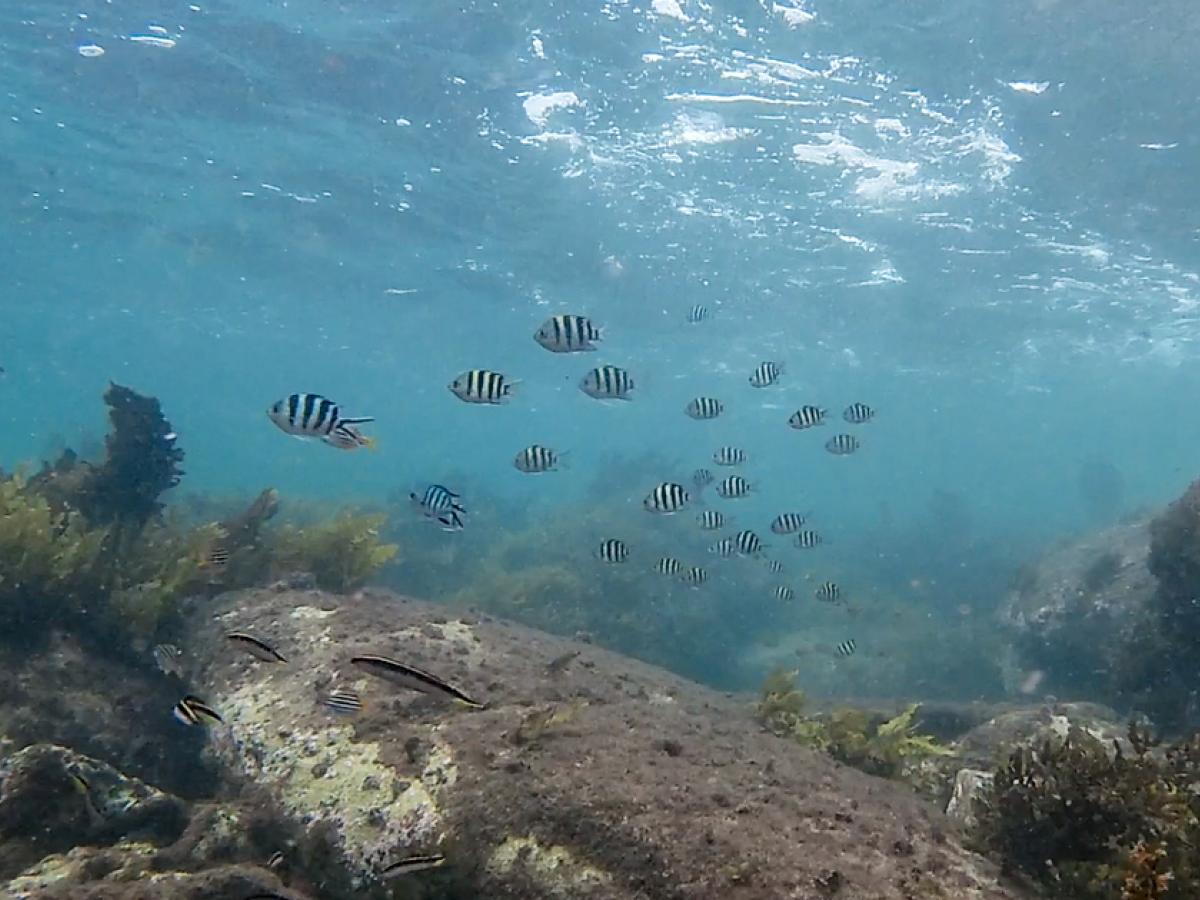Tropical fishes on the move survive better with temperate neighbours
As tropical fishes colonise new habitats in temperate oceans, made available to them because of ocean warming, researchers have found that those who shoal alongside neighbours that are native to the area learn behaviours that help them thrive.

According to the study, performed jointly by researchers from the University of Adelaide and the University of Technology Sydney, tropical fish species that live in mixed shoals, not solely among other tropical fishes, became bolder and fed more, which may aid them in surviving longer and growing larger on temperate reefs.
“This result suggests that novel species interactions, which are often assumed to be stressful or competitive, can benefit some range-extending species,” says lead author Dr Angus Mitchell, from the University of Adelaide’s School of Biological Sciences.
“Shoaling with locals may help tropical fish learn about new predators, food sources, and environmental cues. This reduces uncertainty and boosts survival in unfamiliar ecosystems.”
This work builds upon previous University of Adelaide research that found tropical fish experience decreased physiological performance in temperate ecosystems.
“Our new work demonstrates that novel shoaling interactions could buffer against maladaptive physiological responses,” says co-author Dr Chloe Hayes, from the University’s School of Biological Sciences.
The new study, published in the Journal of Animal Ecology, found that while tropical fishes may thrive in these new environments, the temperate fishes whose habitat is being encroached upon do not enjoy a similar benefit.
“In the subtropics, we saw that temperate fish species, including the Australian Mado, suffered. They were more likely to flee and fed less when tropical species were present,” says co-author Professor David Booth, from the University of Technology Sydney.
These interactions may force temperate fish species out of their warmest native areas permanently.
“Subtropical reefs already sit at the thermal limits for many temperate fish. Added stress from tropical competitors could tip them over the edge,” says project leader Professor Ivan Nagelkerken, from the University of Adelaide.
Knowledge of the interspecies dynamics that occur due to climate change-induced migration will be important when designing conservation strategies.
“Our research shows that climate-driven species redistributions are not just about temperature. They are also about the new relationships formed in recipient ecosystems,” says Professor Nagelkerken.
“As the world’s oceans continue to heat up, understanding the outcomes of these novel interactions, whether friend or foe, will be critical for predicting how reef communities will be reshaped in a rapidly warming ocean.”
Dr Angus Mitchell, School of Biological Sciences, University of Adelaide. Phone: +61 0400 031 064 Email: angus.mitchell@adelaide.edu.au
Professor Ivan Nagelkerken, School of Biological Sciences, University of Adelaide. Phone: +61 0477 320 551 Email: ivan.nagelkerken@adelaide.edu.au
Professor David Booth, School of the Life Sciences, University of Technology Sydney. Email: david.booth@uts.edu.au
Johnny von Einem, Senior Media Officer, University of Adelaide. Phone: +61 0481 688 436, Email: johnny.voneinem@adelaide.edu.au
